Samco Spanish Mausers
I have received fifty five Spanish Mausers, Model 1916, which originated from SAMCO. That company shut down about a year ago, and its assets -
including a number of C&R rifles - were auctioned off this spring.
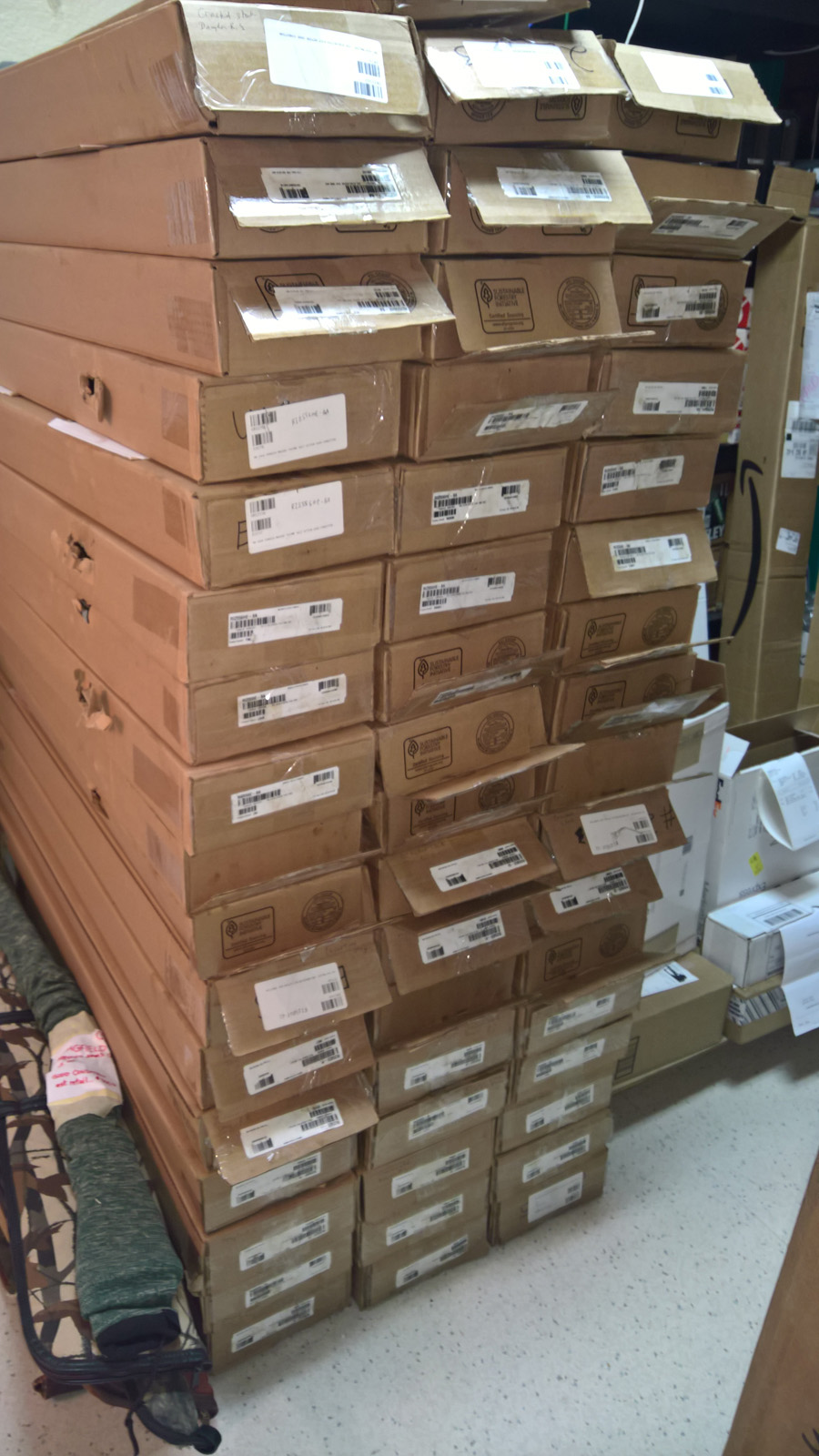
It looks like these rifles now appear at a number of online retailers and on Gunbroker. The below is my experience with them.
The Mausers are advertized as being in Good condition. NRA defines Antique Good as follows:
Some minor replacement parts; metal smoothly rusted or lightly pitted in places, cleaned or re-blued;
principal letters, numerals and design on metal legible; wood refinished, scratched bruised or minor cracks repaired; in good working order.
Not good
Unfortunately, these guns are very far from this definition.
To start, the guns still bear the original Samco tags with the importer's original grading. About half of the guns were marked as "PI" - for "poor, incomplete",
meaning that the guns were incomplete and in poor condition. About one quarter was marked as "GI" - for "good, incomplete", and the rest were marked as "BA" -
or "barreled action", meaning that the gun was imported just as action, without bolt or stock (and stickers had text to that effect).
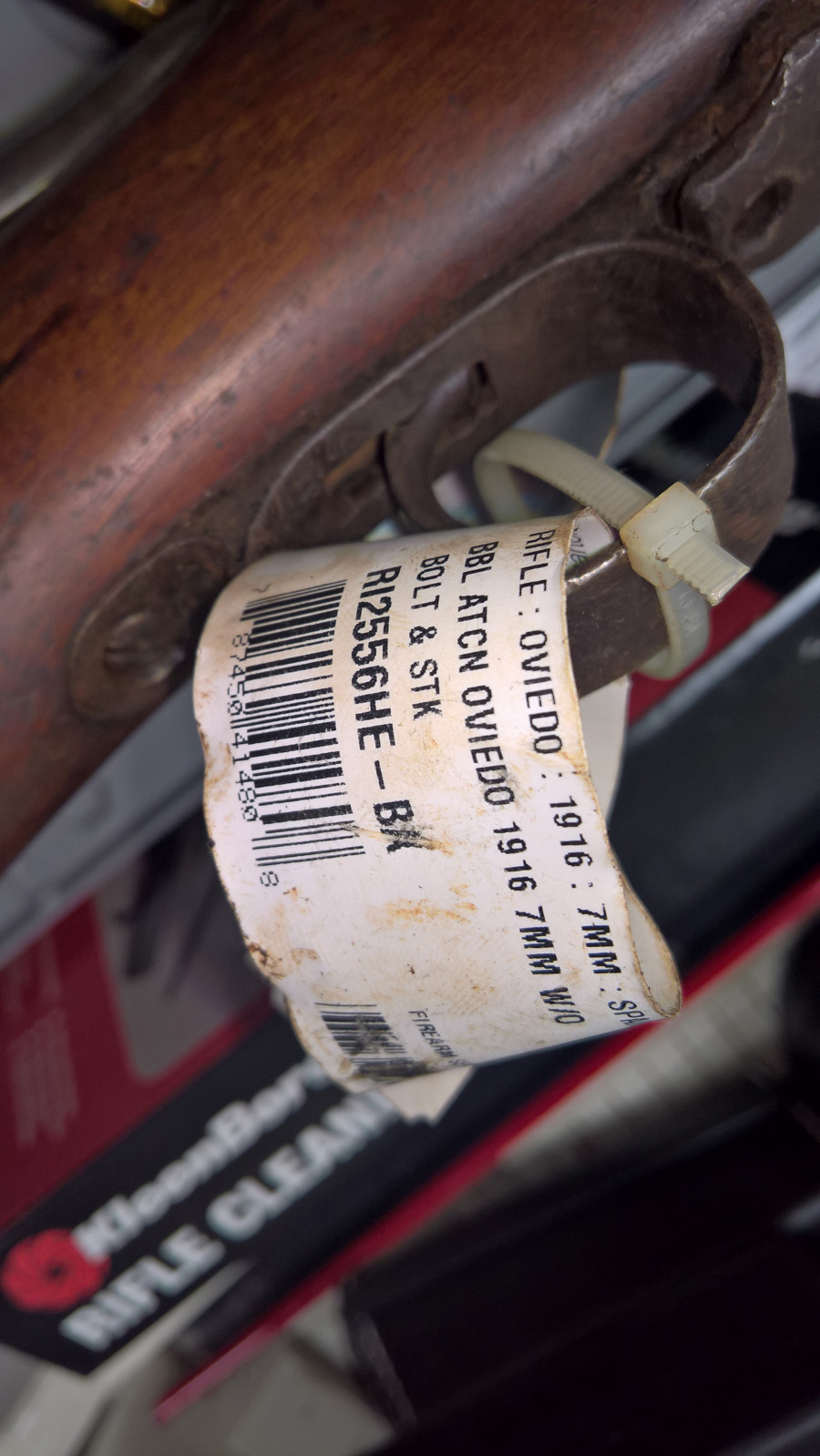
That alone of course precludes from grading the guns as "good" as they weren't original rifle when imported - they were assembled from a grab bag of parts.
The definition of "good condition" from NRA - the standard definition used in the industry, specifically says that replacement parts should be "minor".
For example, the magazine metal on majority of the rifles was incorrect - it came from a mixed bag that contained K98, Yugoslavian, and Spanish parts. This is
how magazine bottom should look on a real Spanish Mauser:
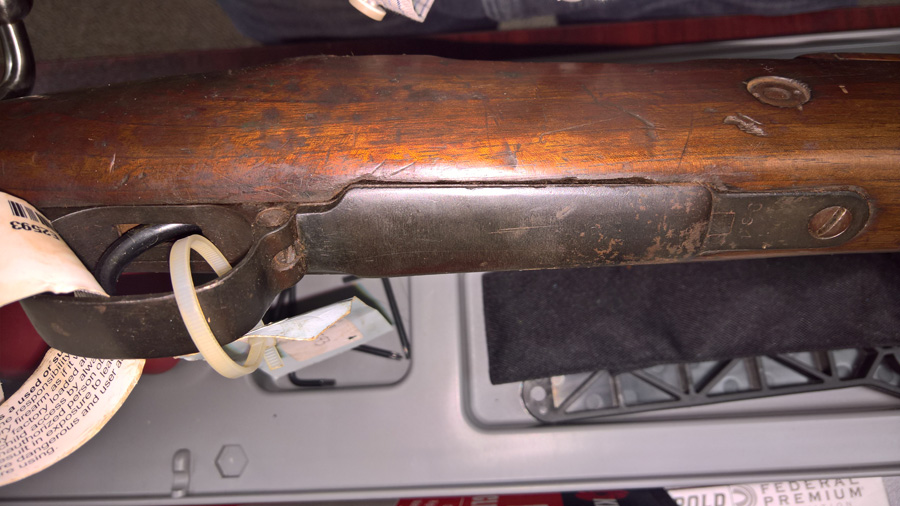
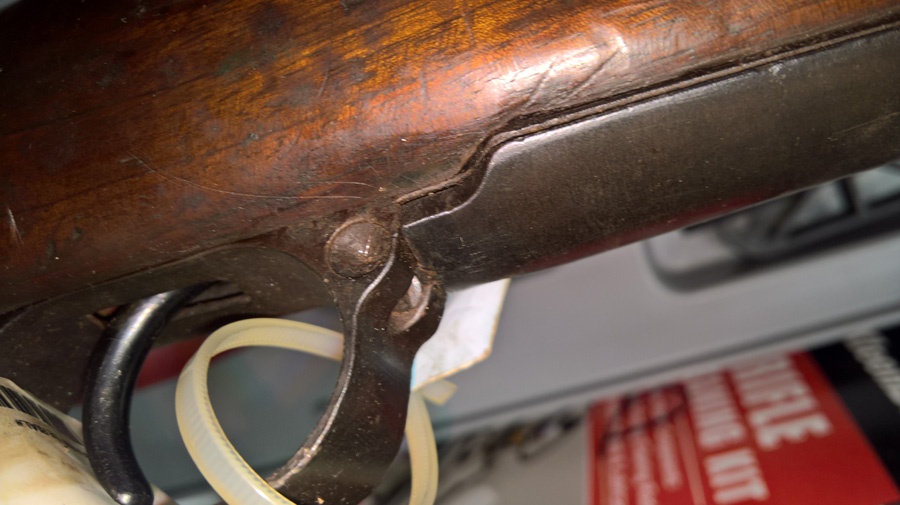
And this is what majority of them had:
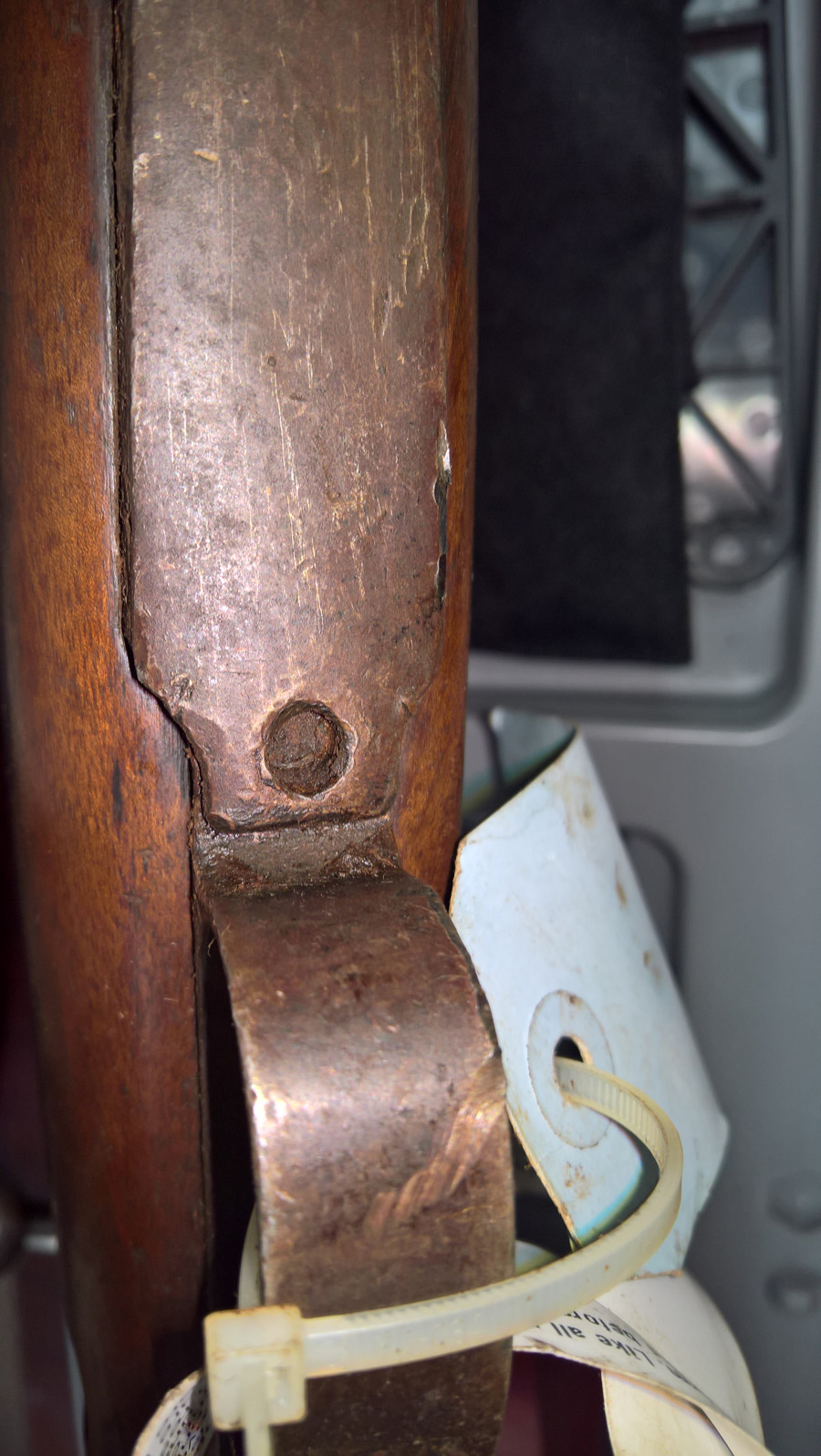
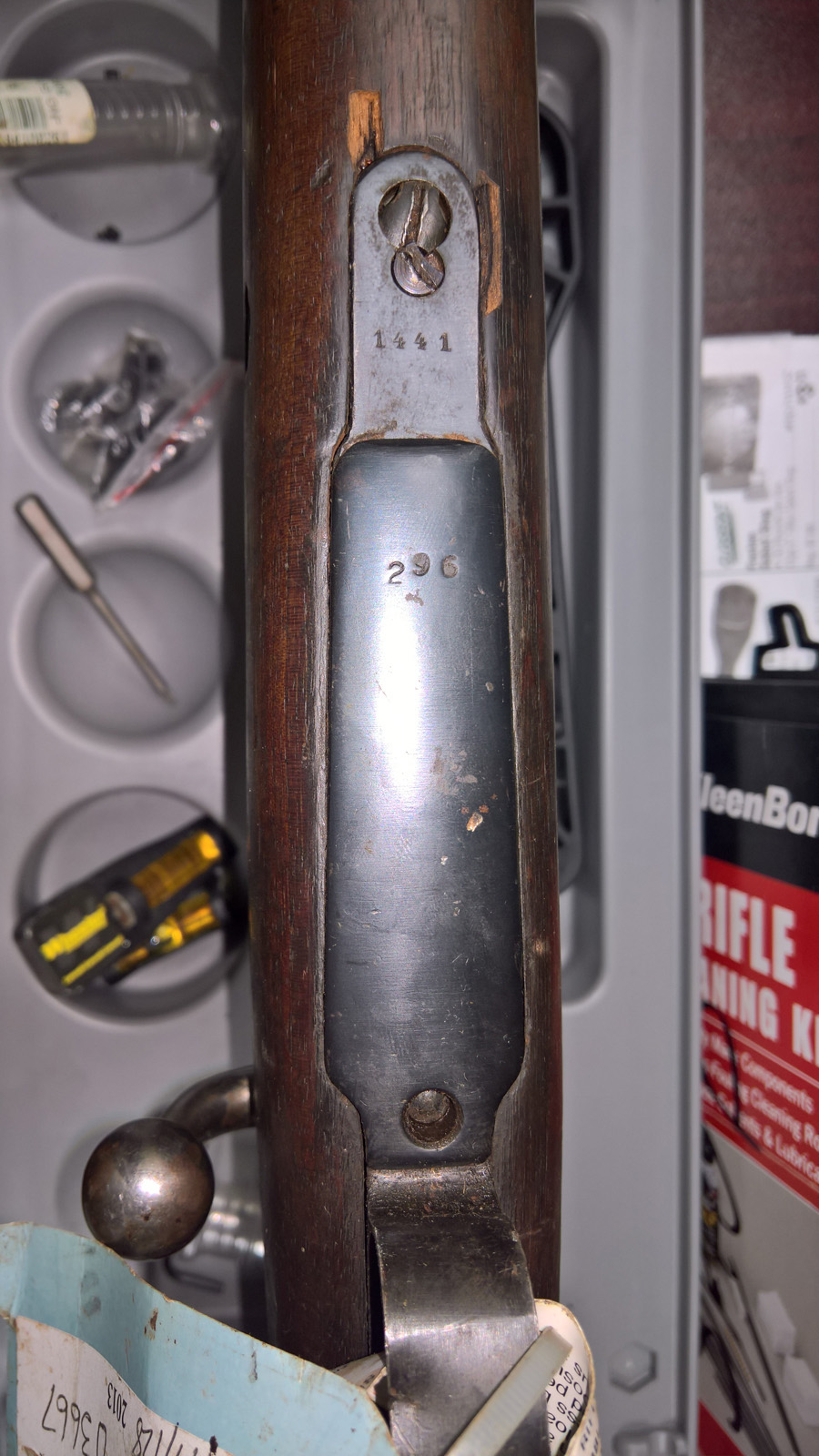
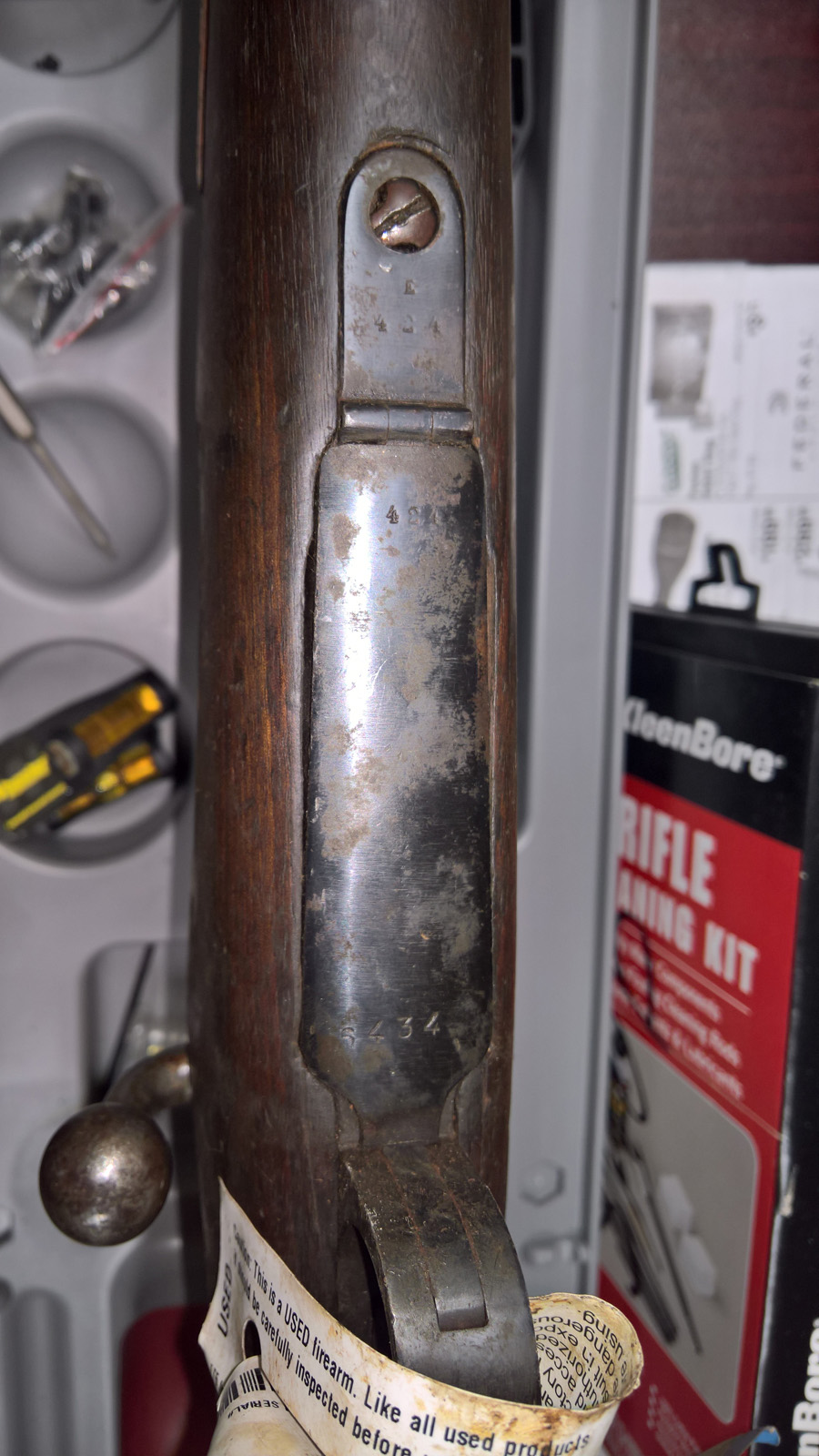
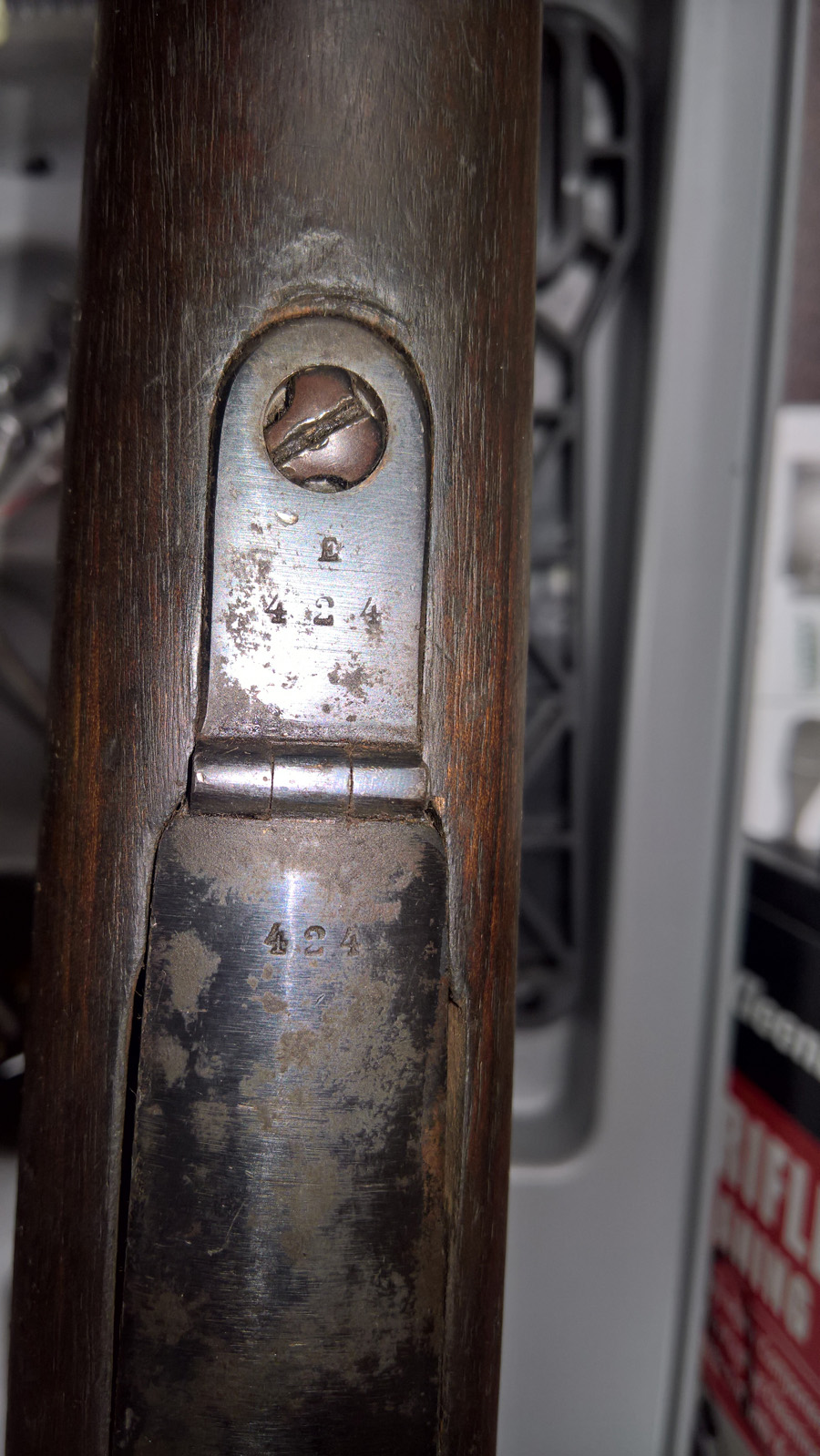
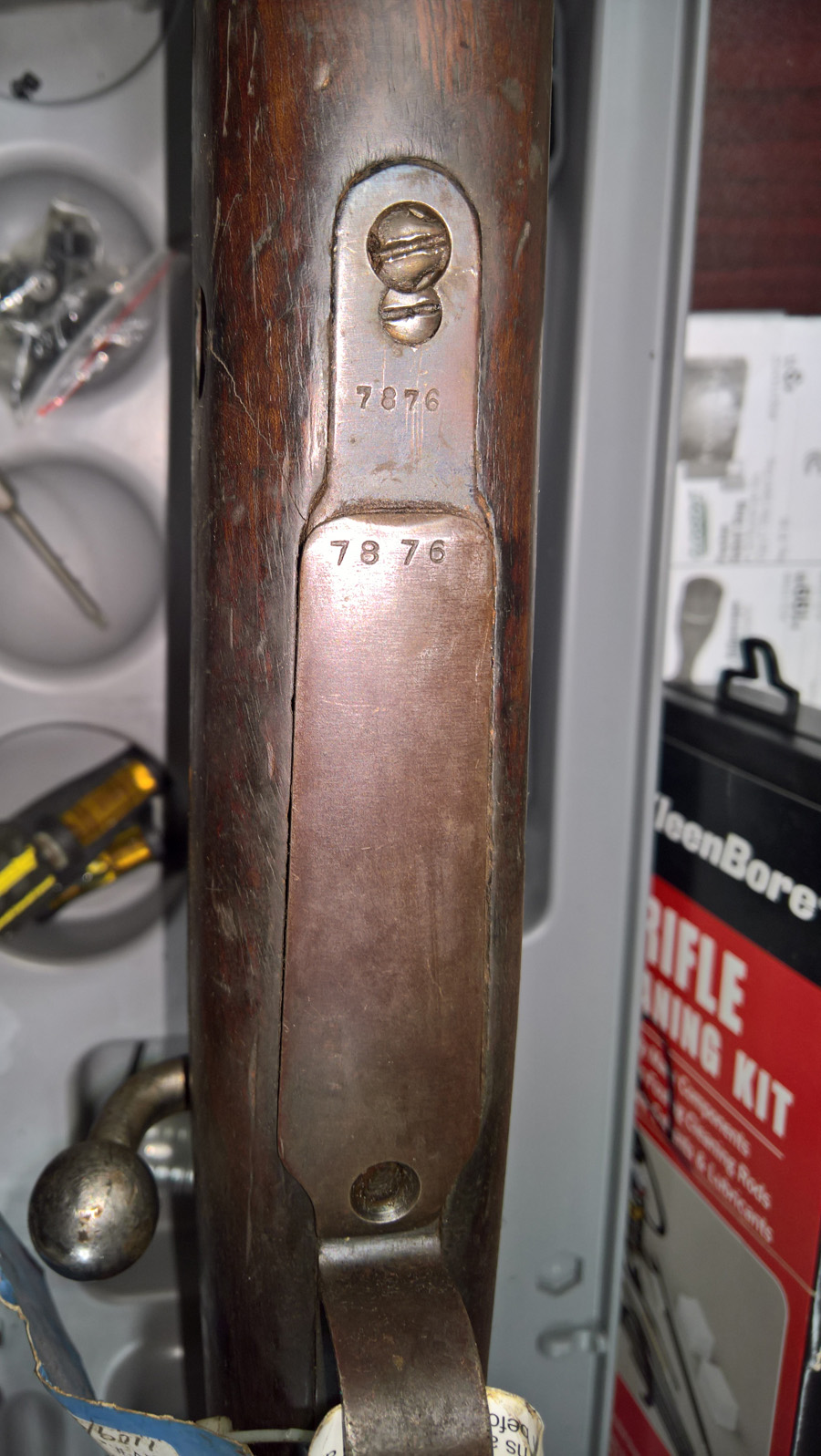
This is not an innocent substitution - it happens to affect the action of the rifle. Because the parts were foreign, in many cases
they did not fit the stock:
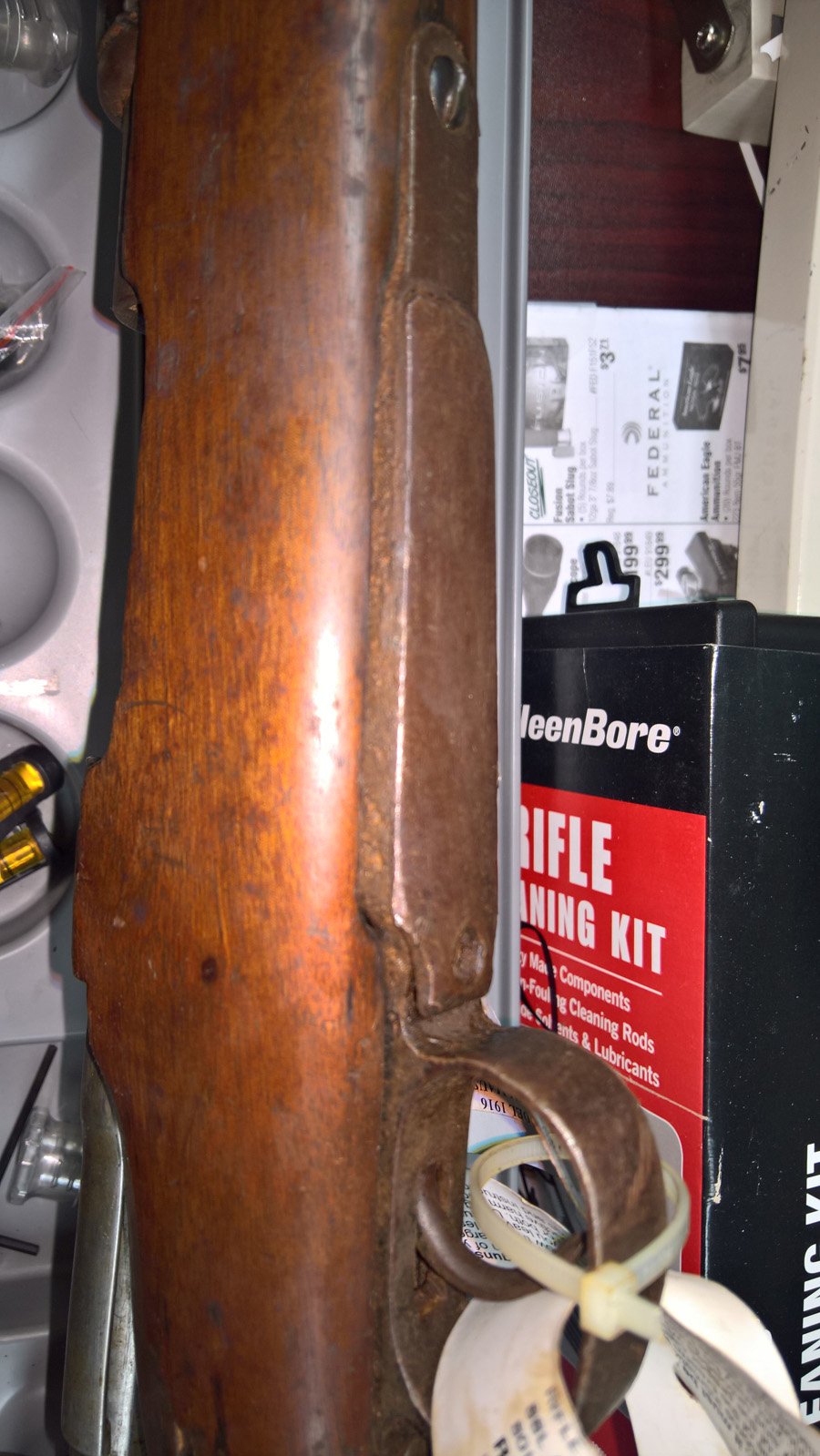
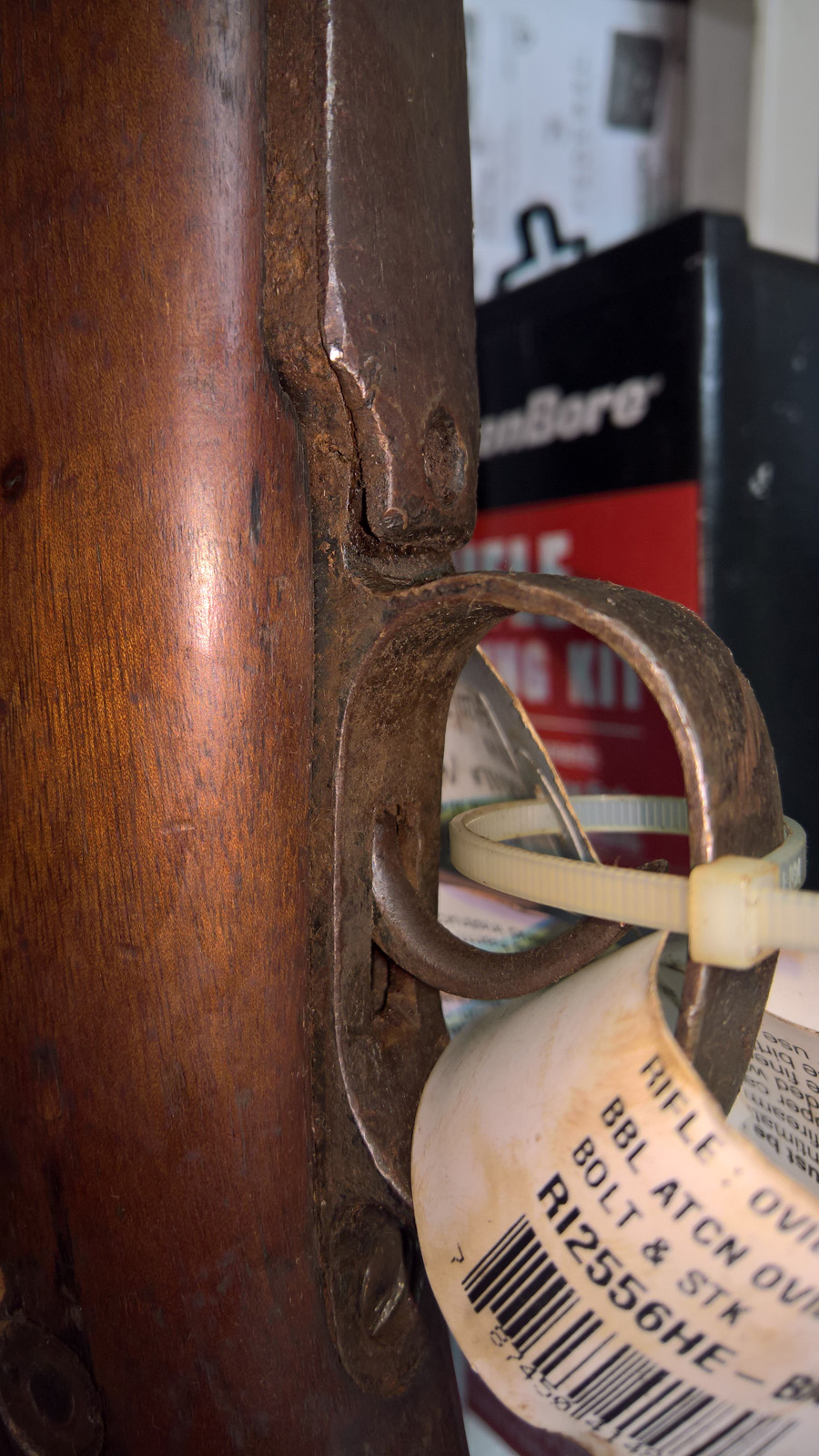
As a result, on these rifles there was a gap between the magazine well and the receiver.
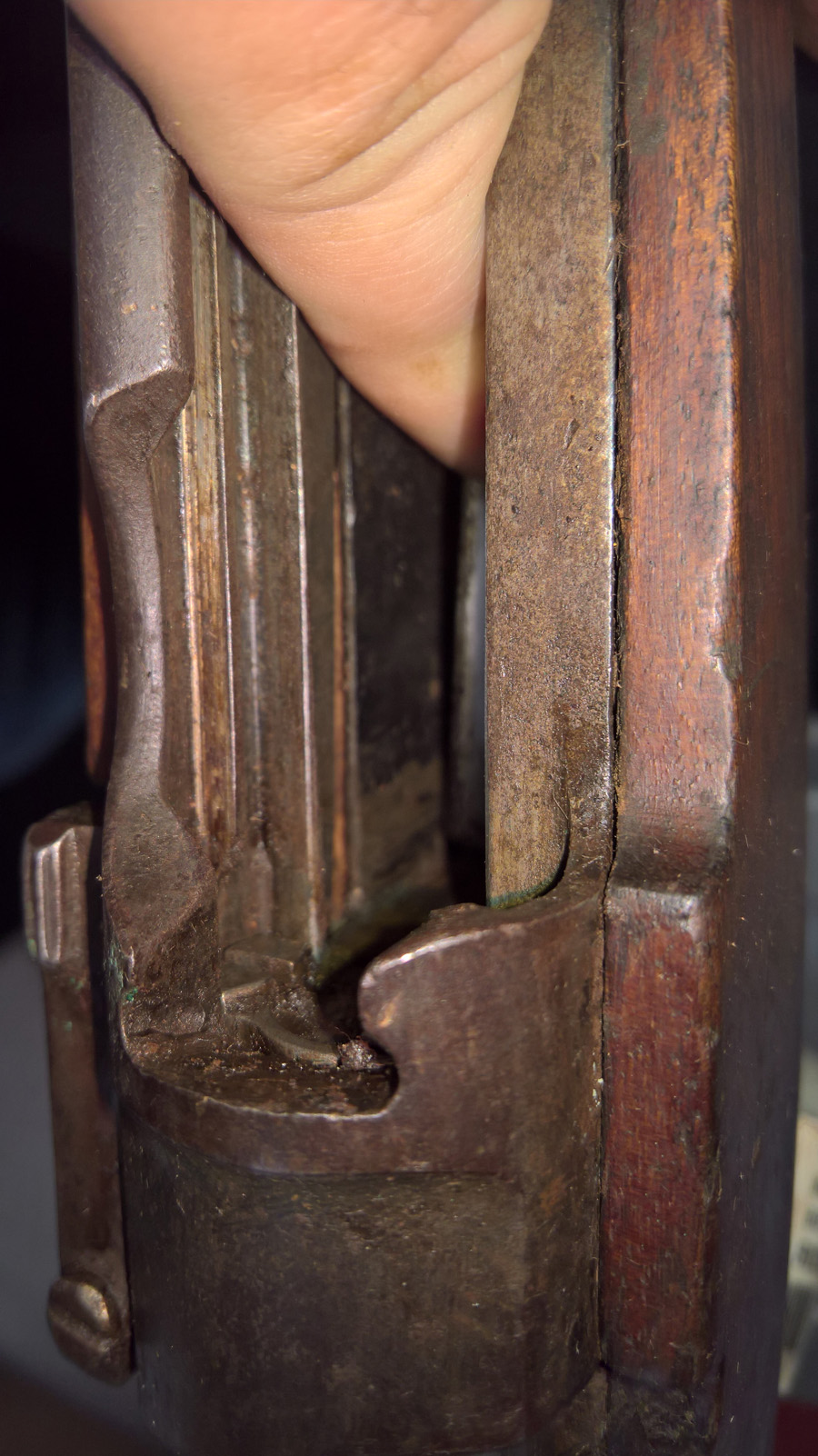
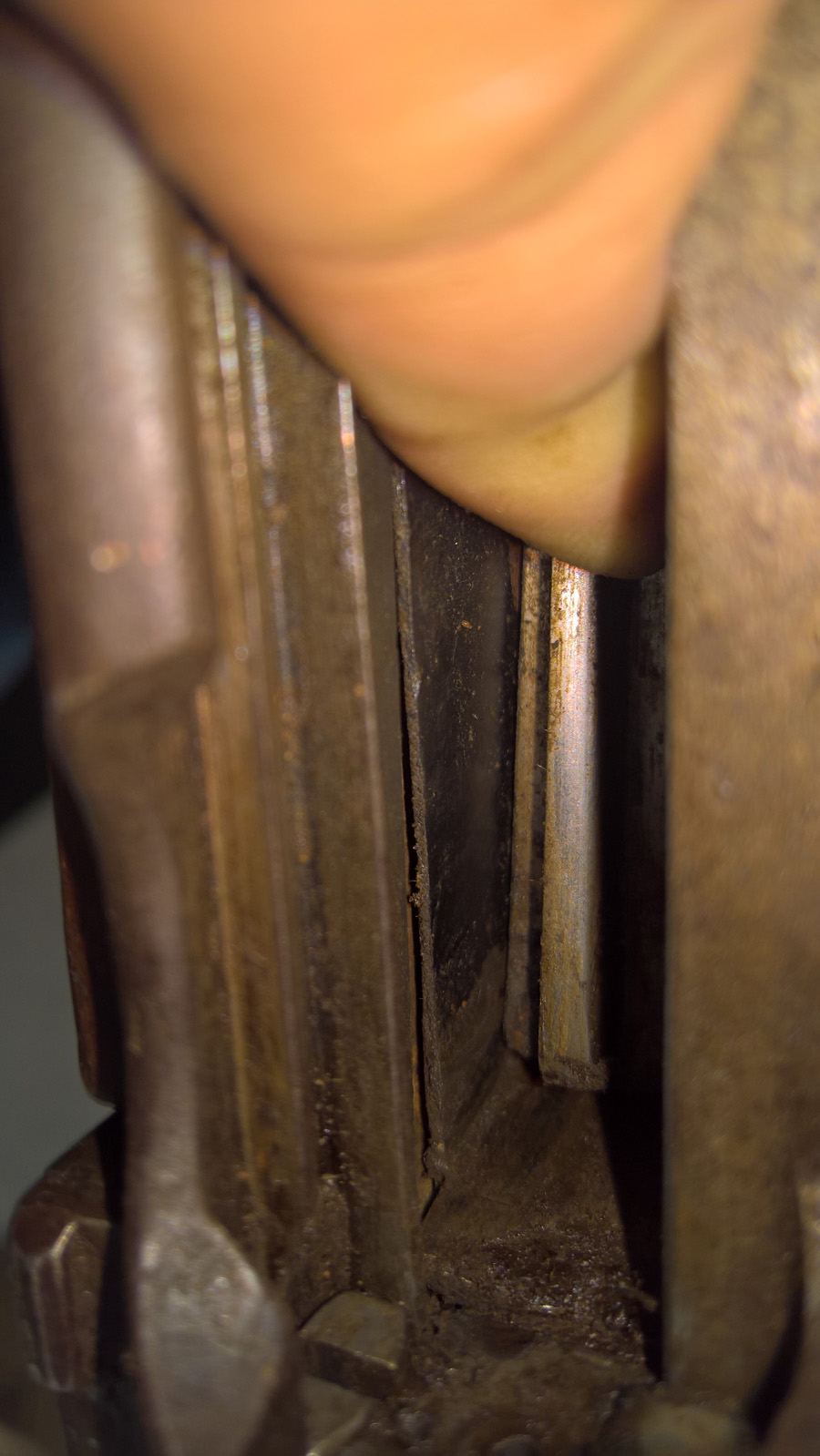
The side of the magazine follower often gets lodged into the gap, disabling the function of the magazine.
Cracked and beaten stocks in poor codition
Stocks are in horrible shape in all of these rifles. In my 10+ years of collecting military surplus rifles, I have never before seen
stocks in this condition rated "Good". In addition to being simply beat up, majority of stocks are cracked, missing pieces of wood...
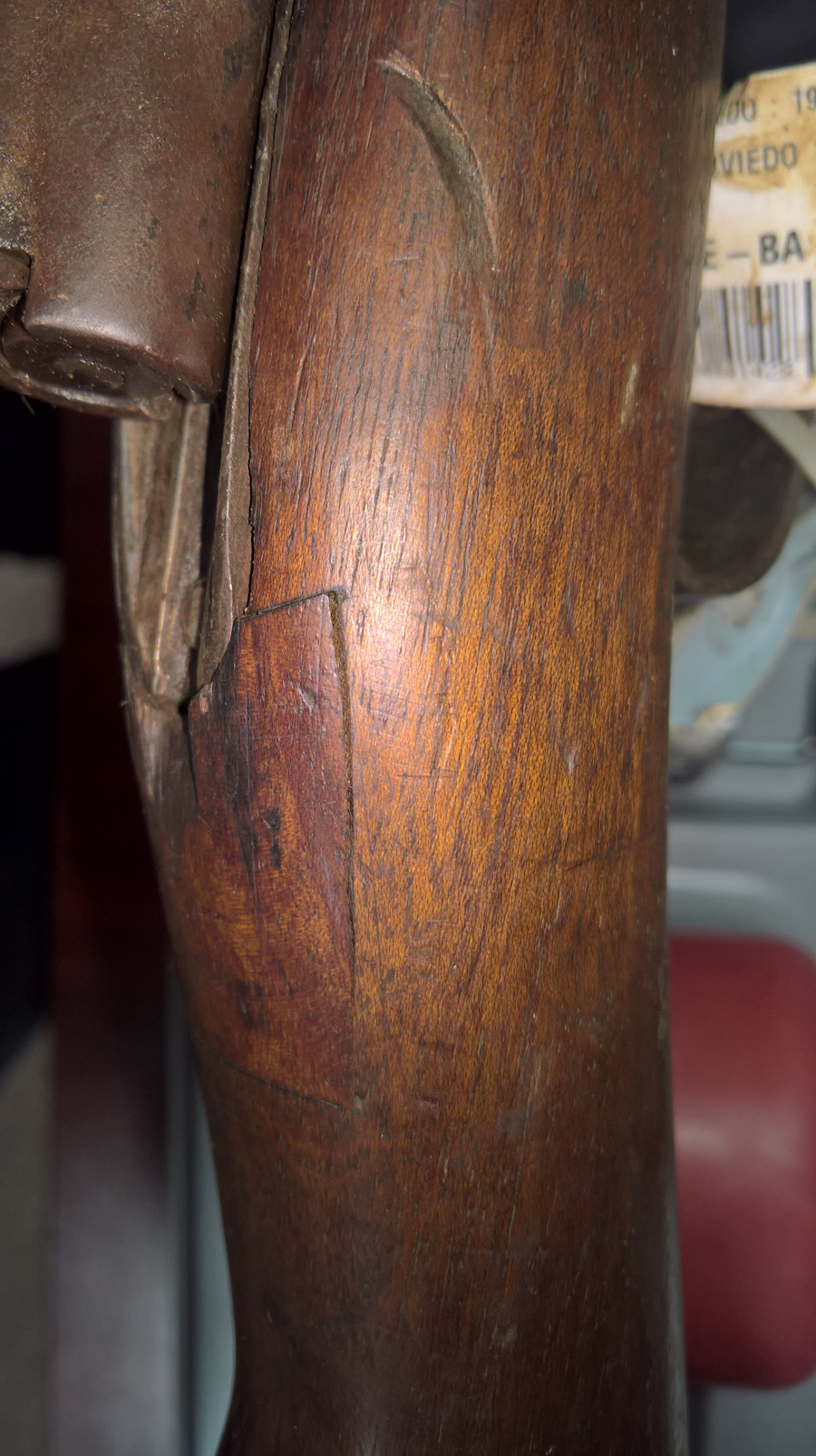
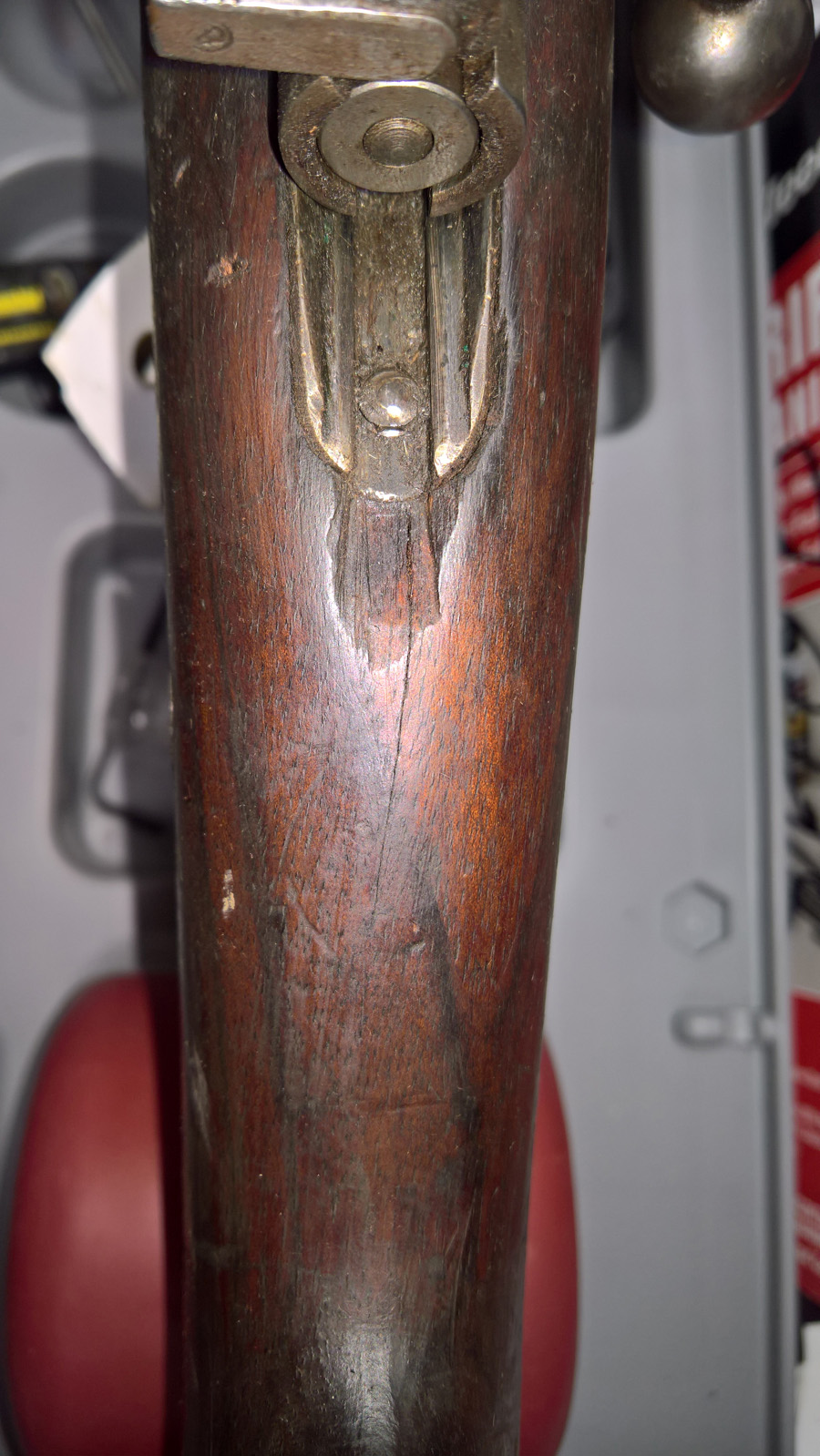
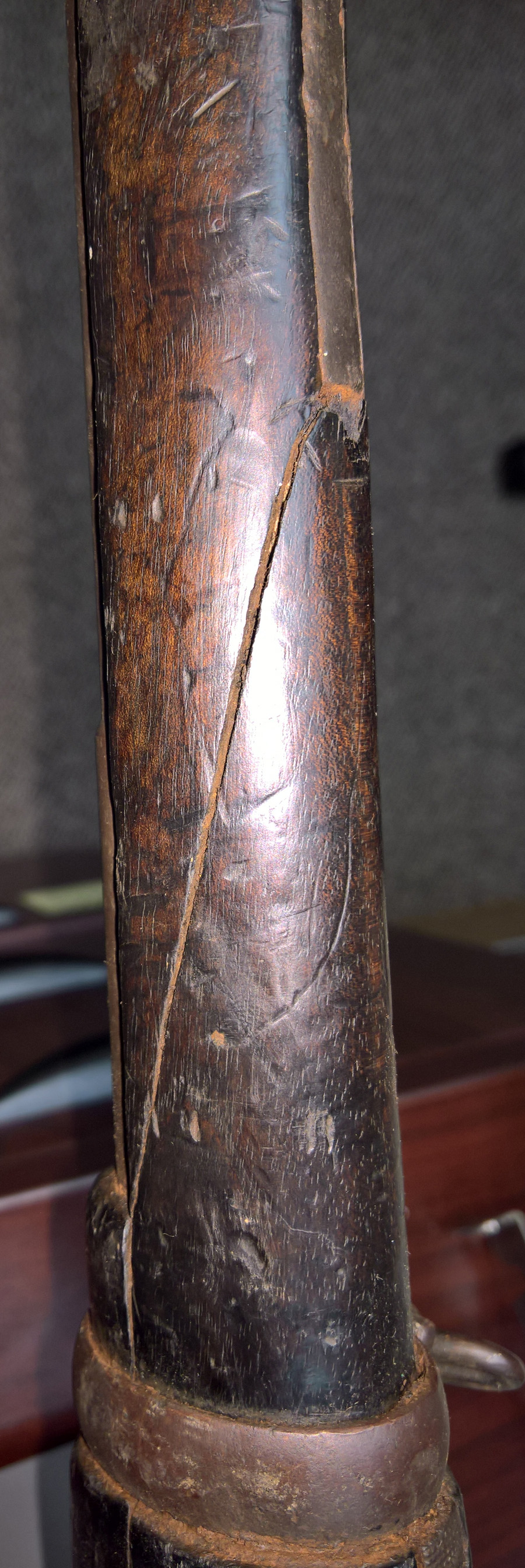
...rotten to the point where iron parts do not fit...
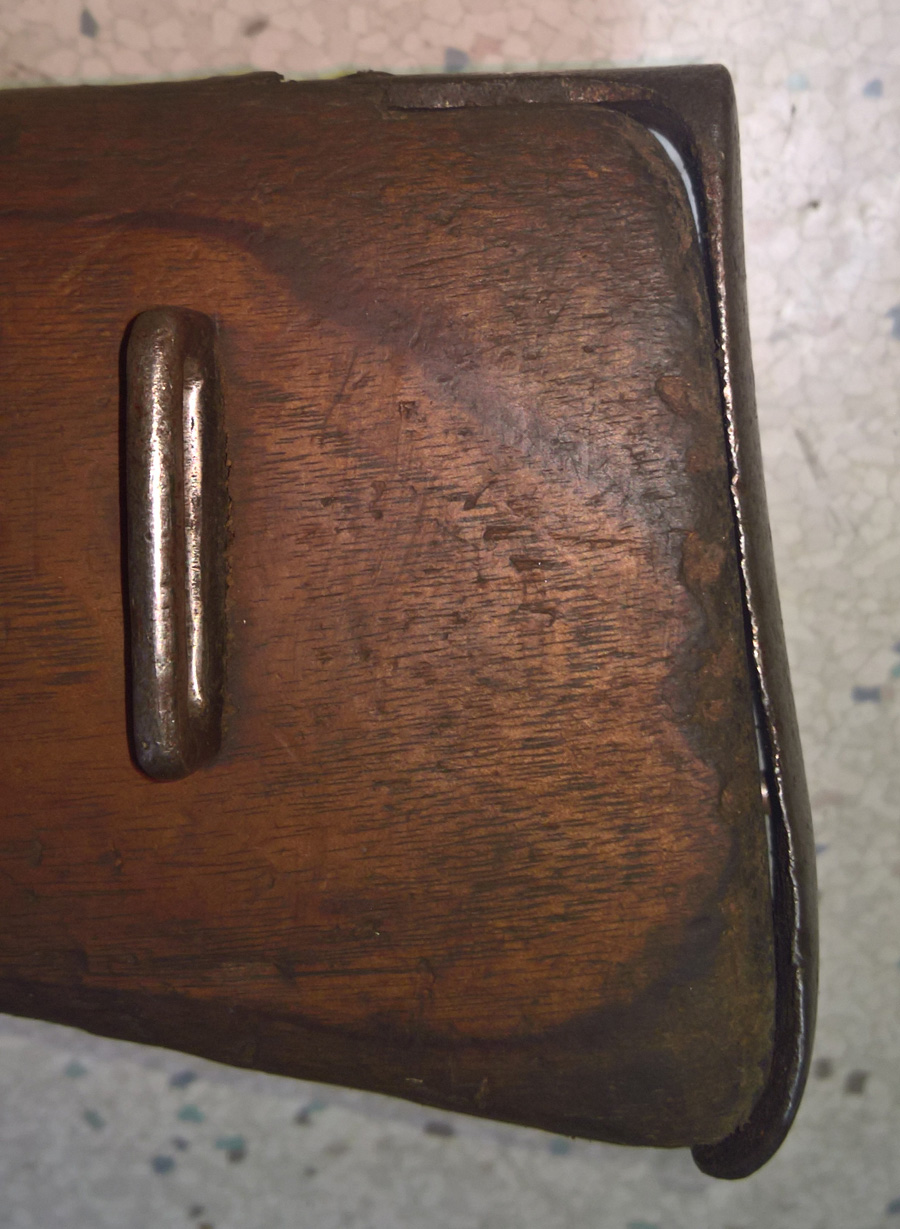
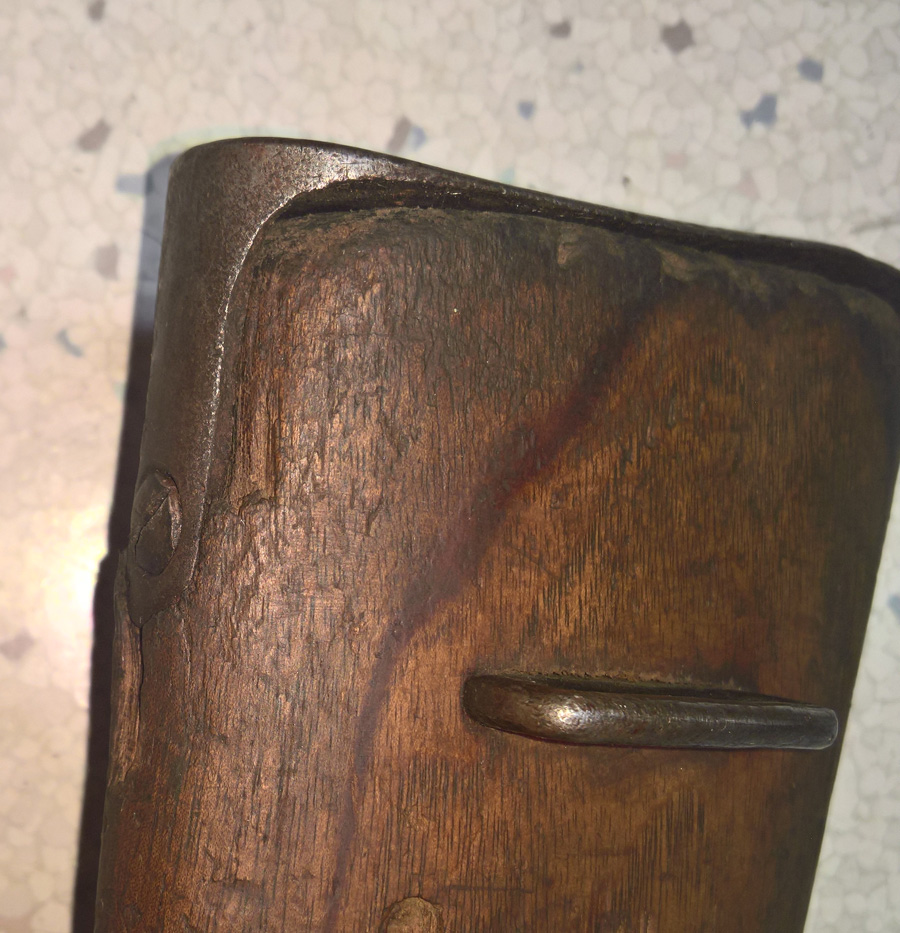
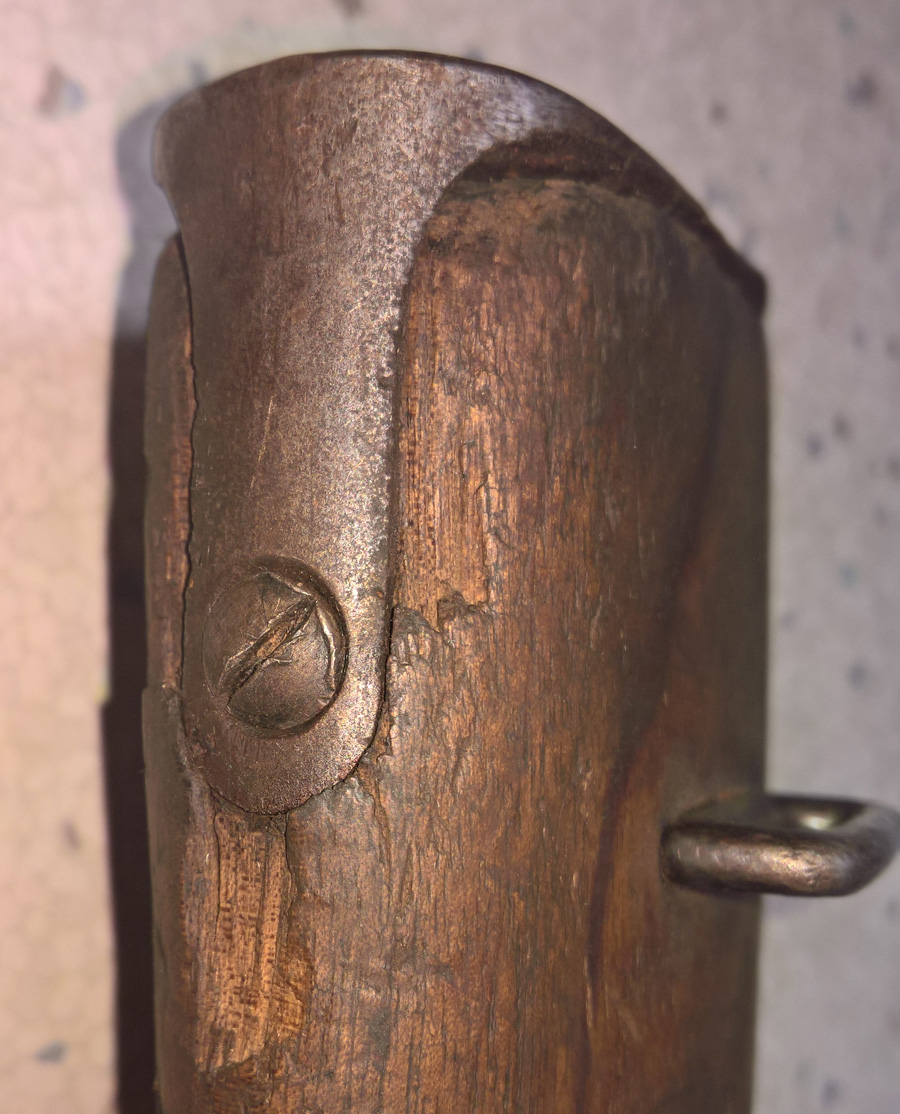
Many handguards seem to not match the rifles on which they were installed, and were crudely jammed into the rifles, resulting
in bent and sometimes broken metal housing...
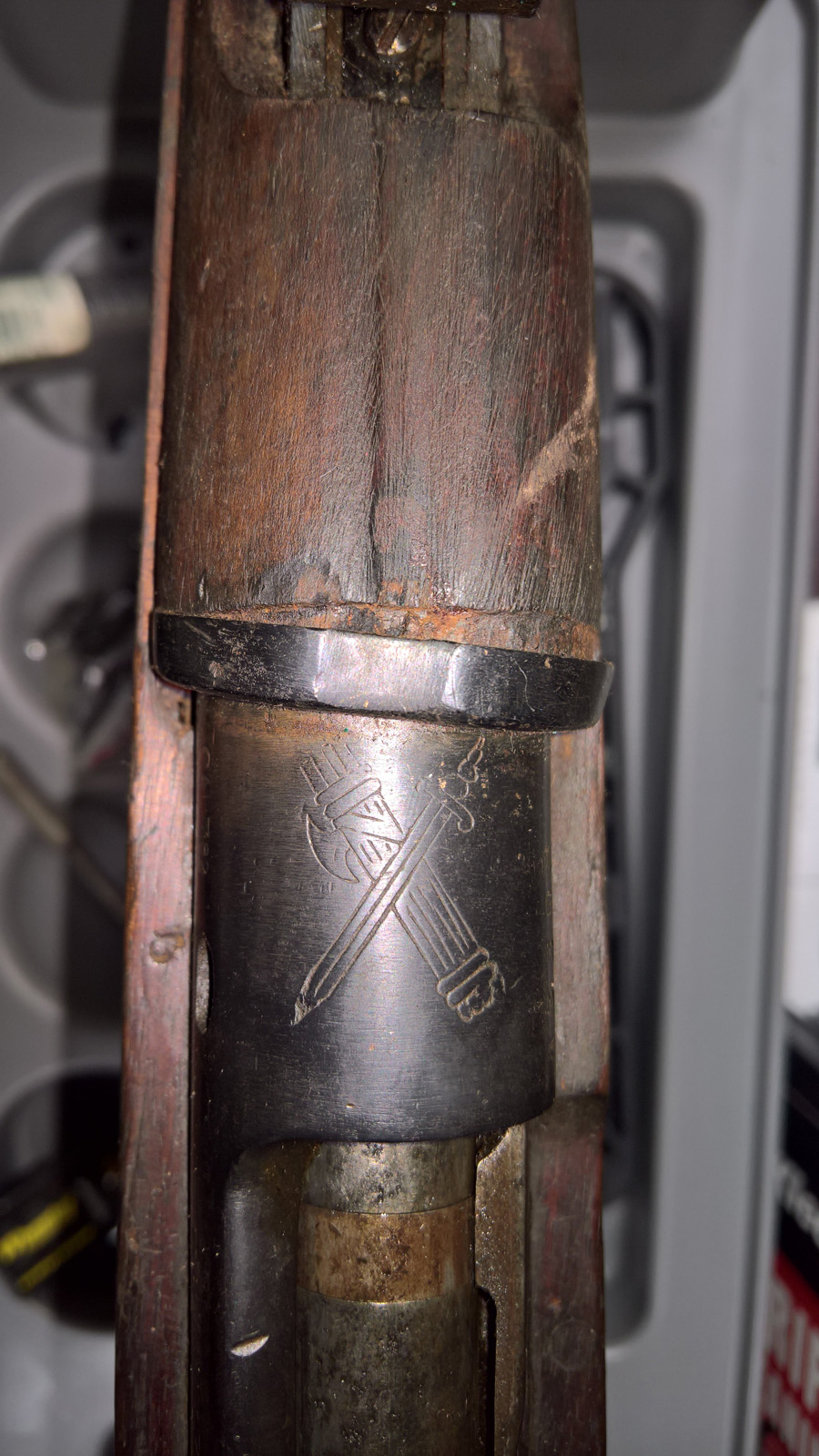
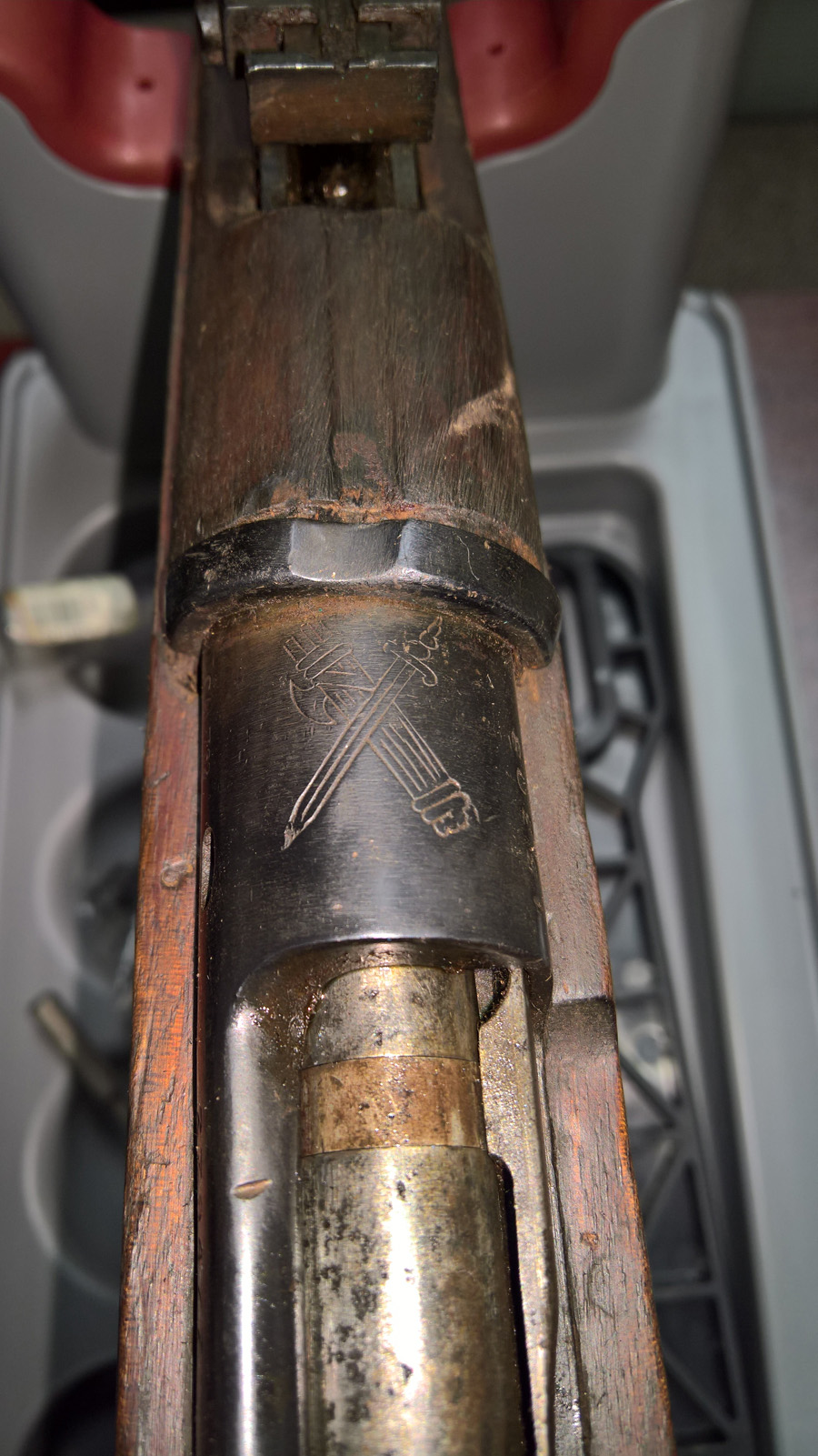
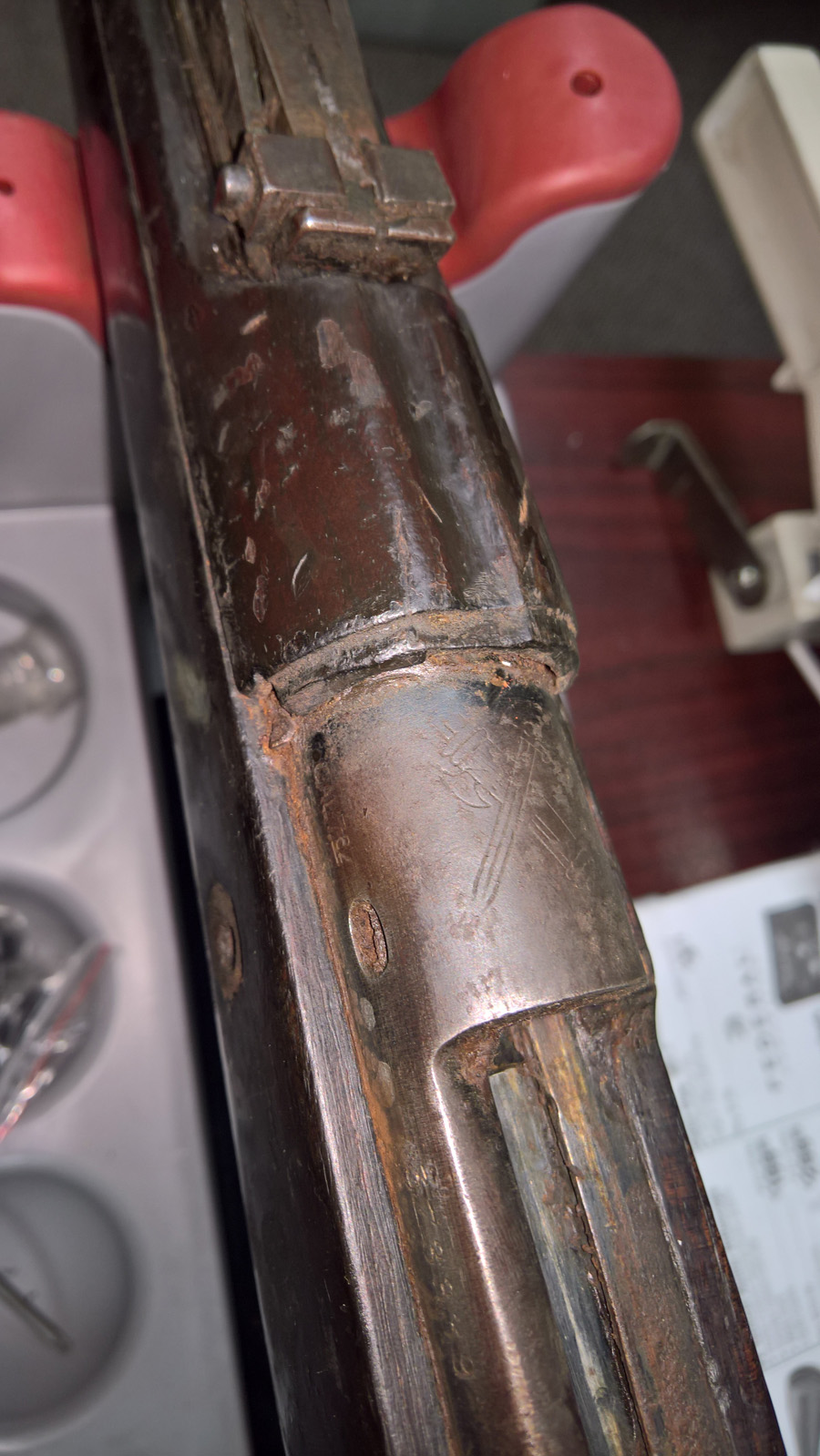
...and often the gaps between the rear sights and the wood:
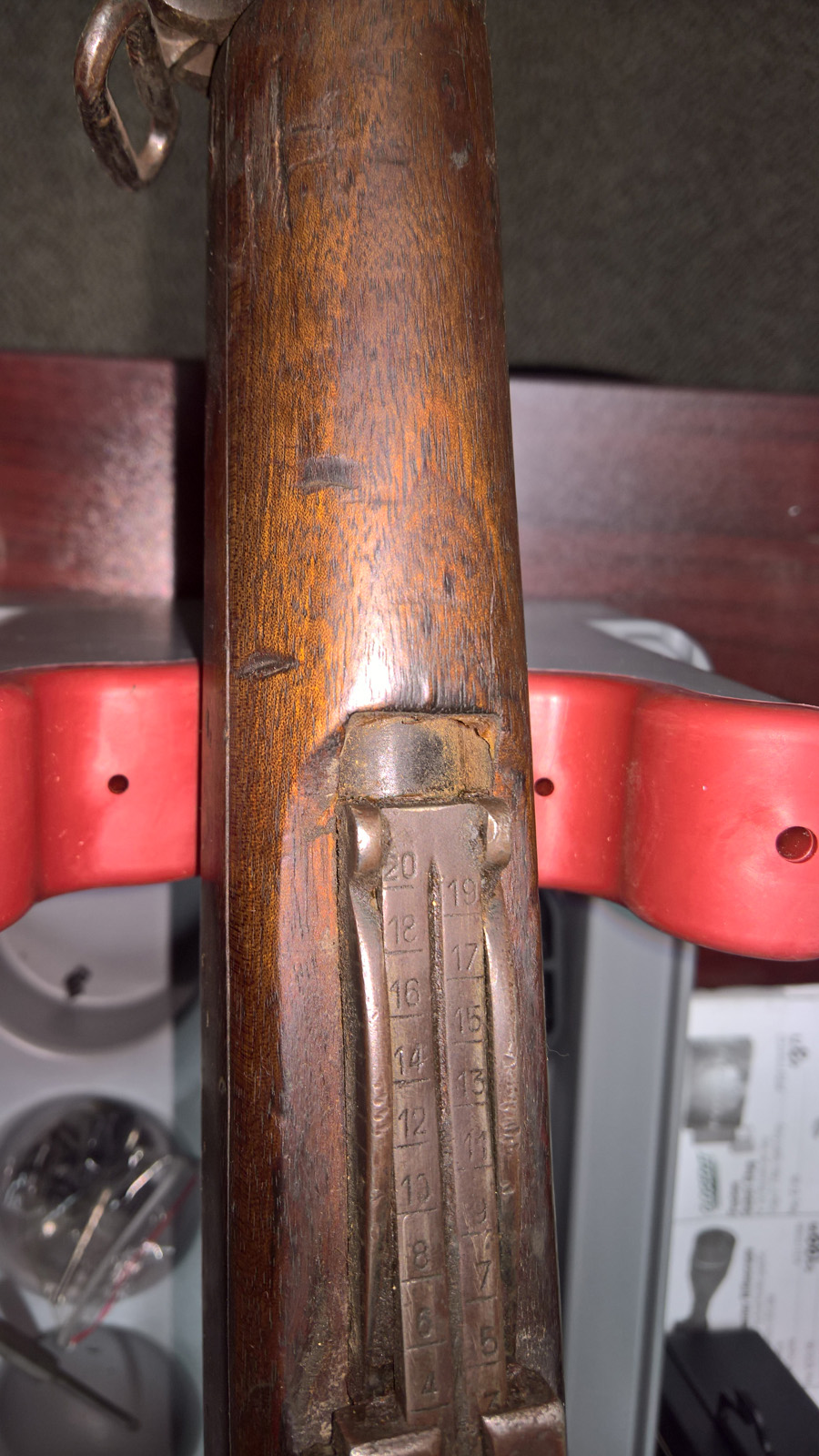
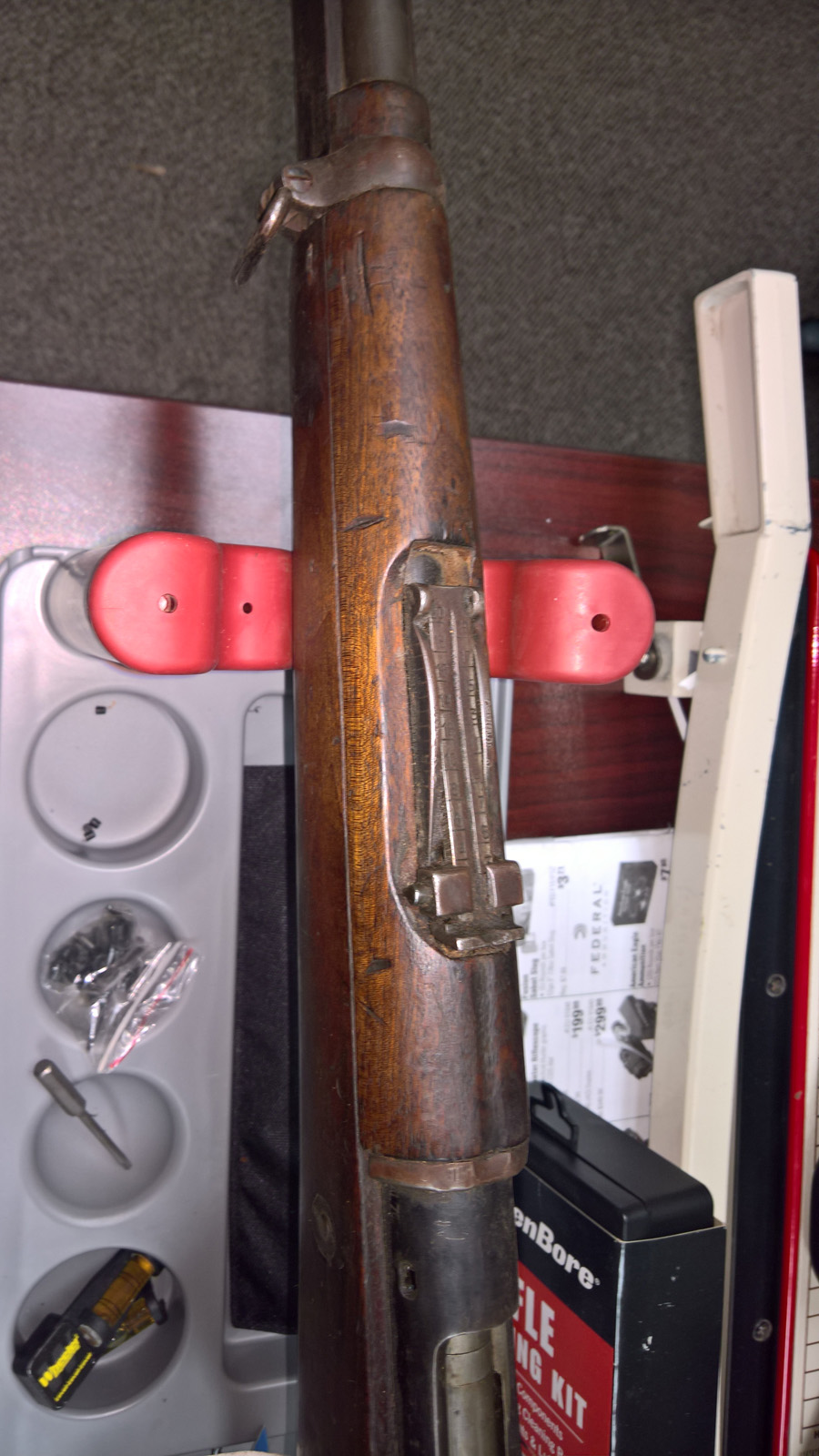
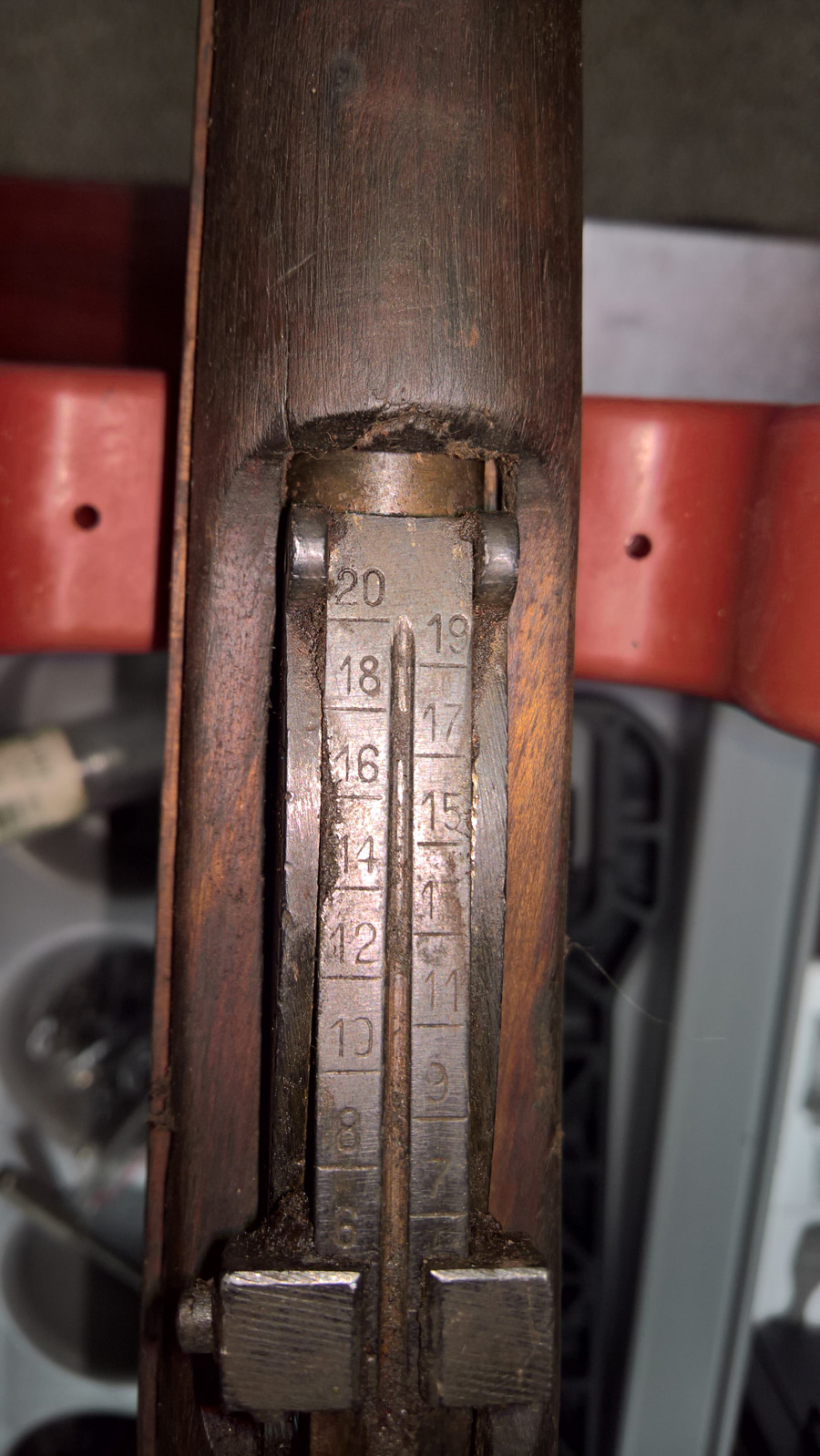
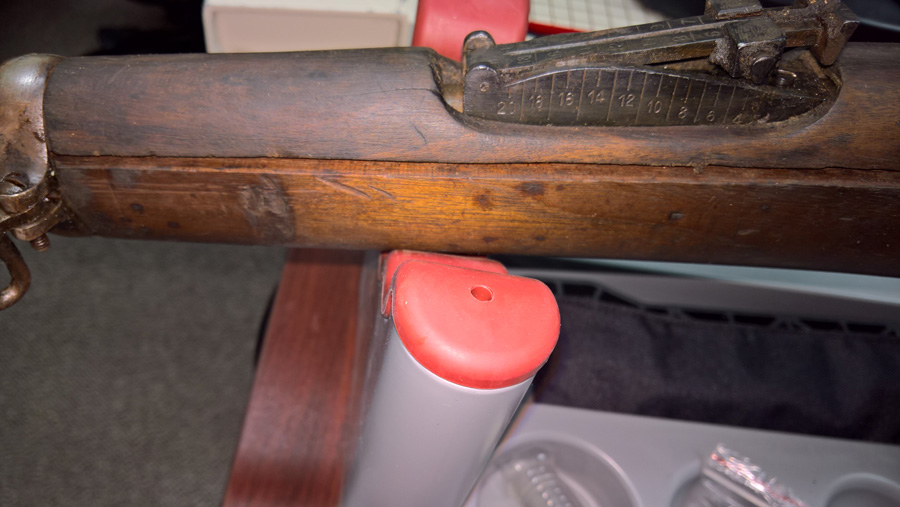
This is how the correct handguard should look like:
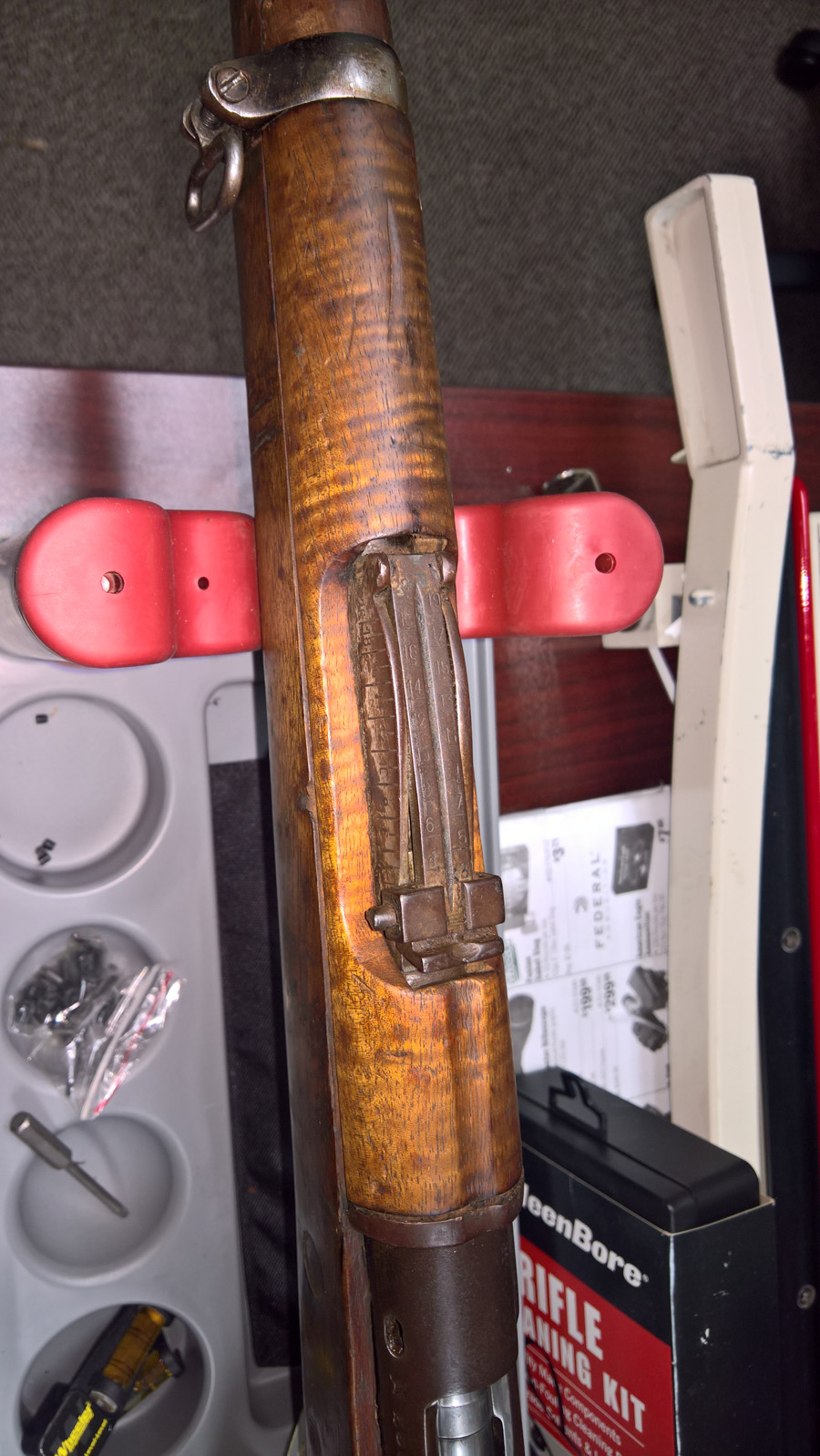
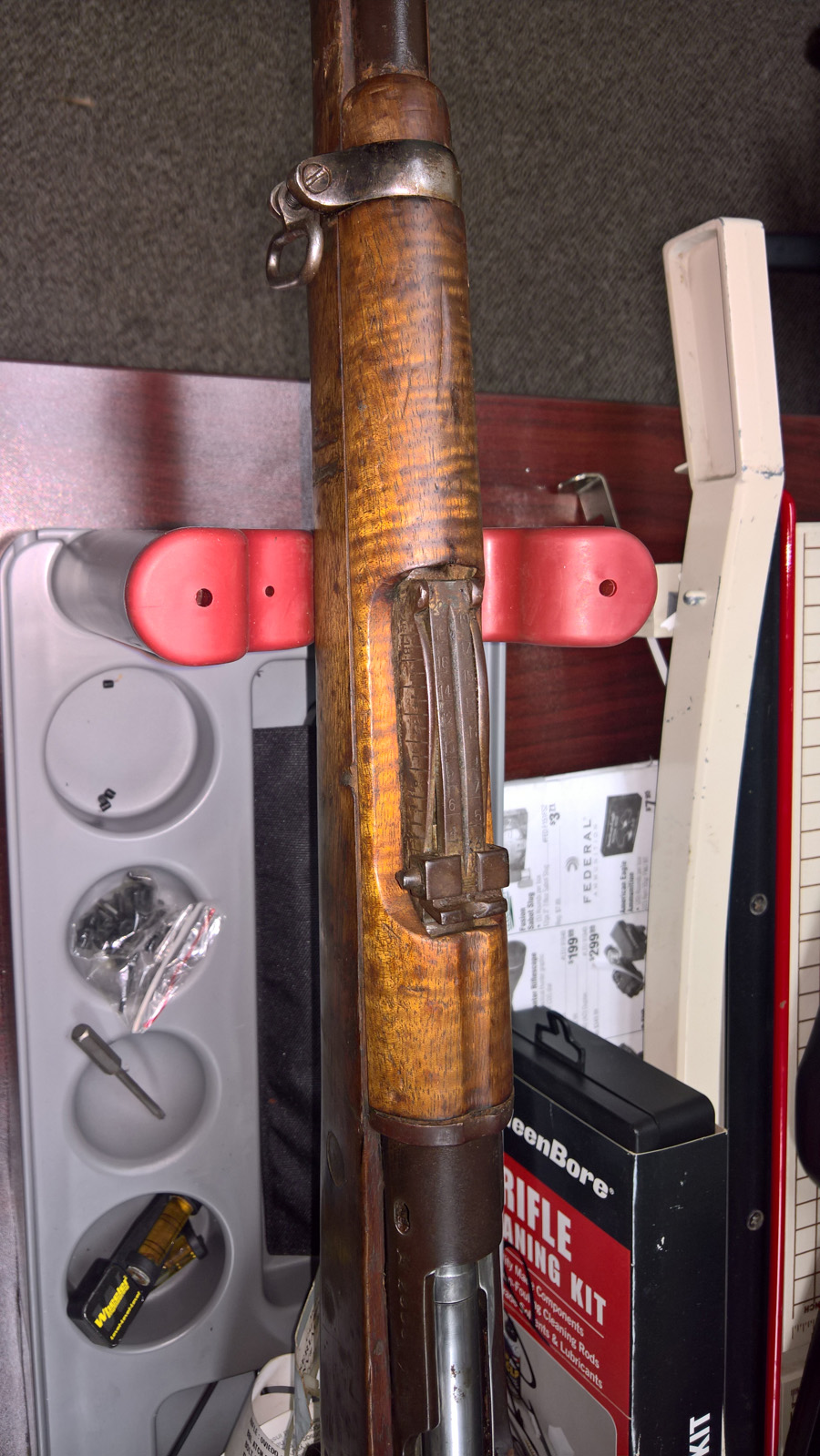
Sights
There were a number of rifles where front sights were broken - either crooked...
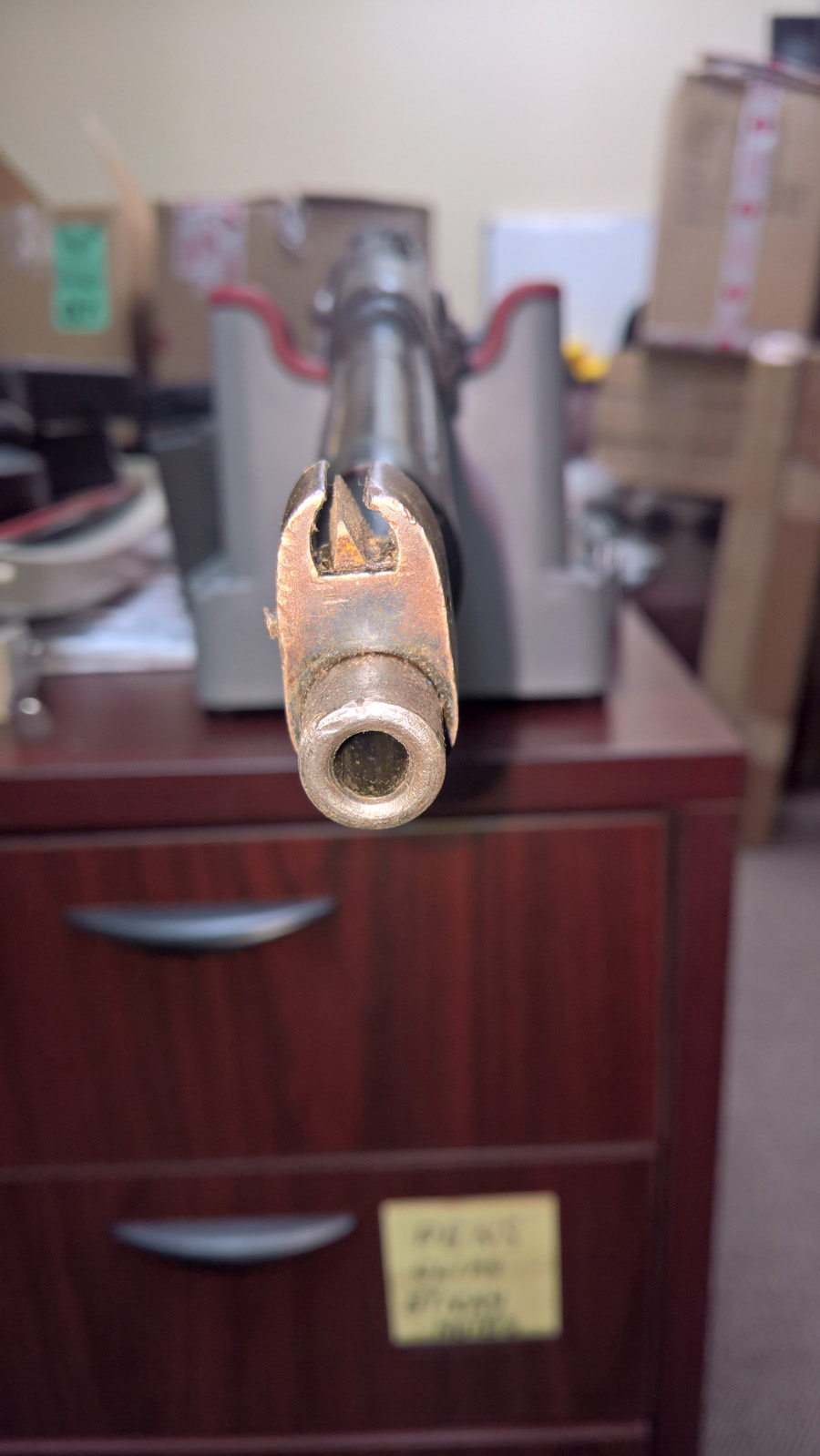
...missing housing...
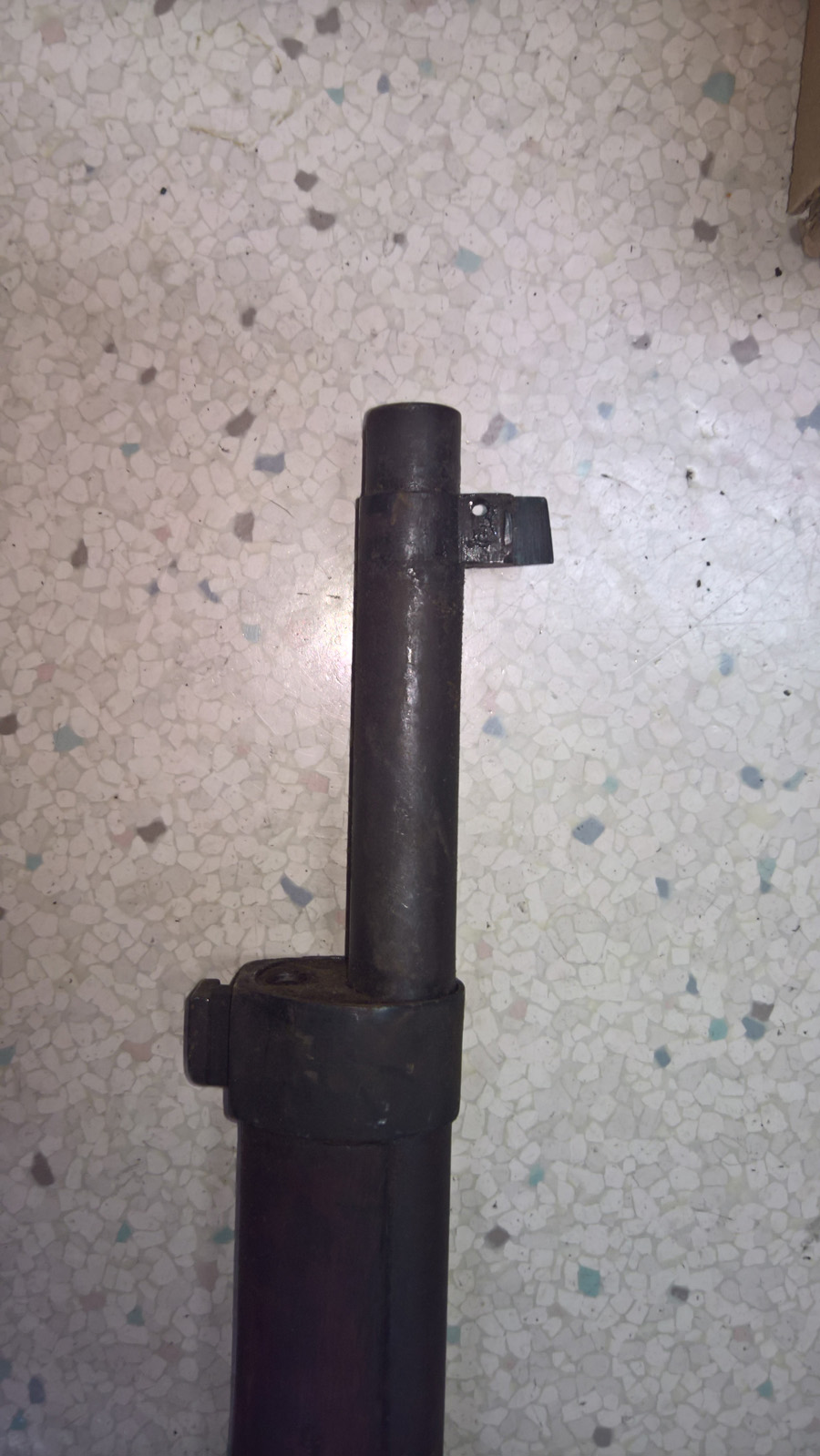
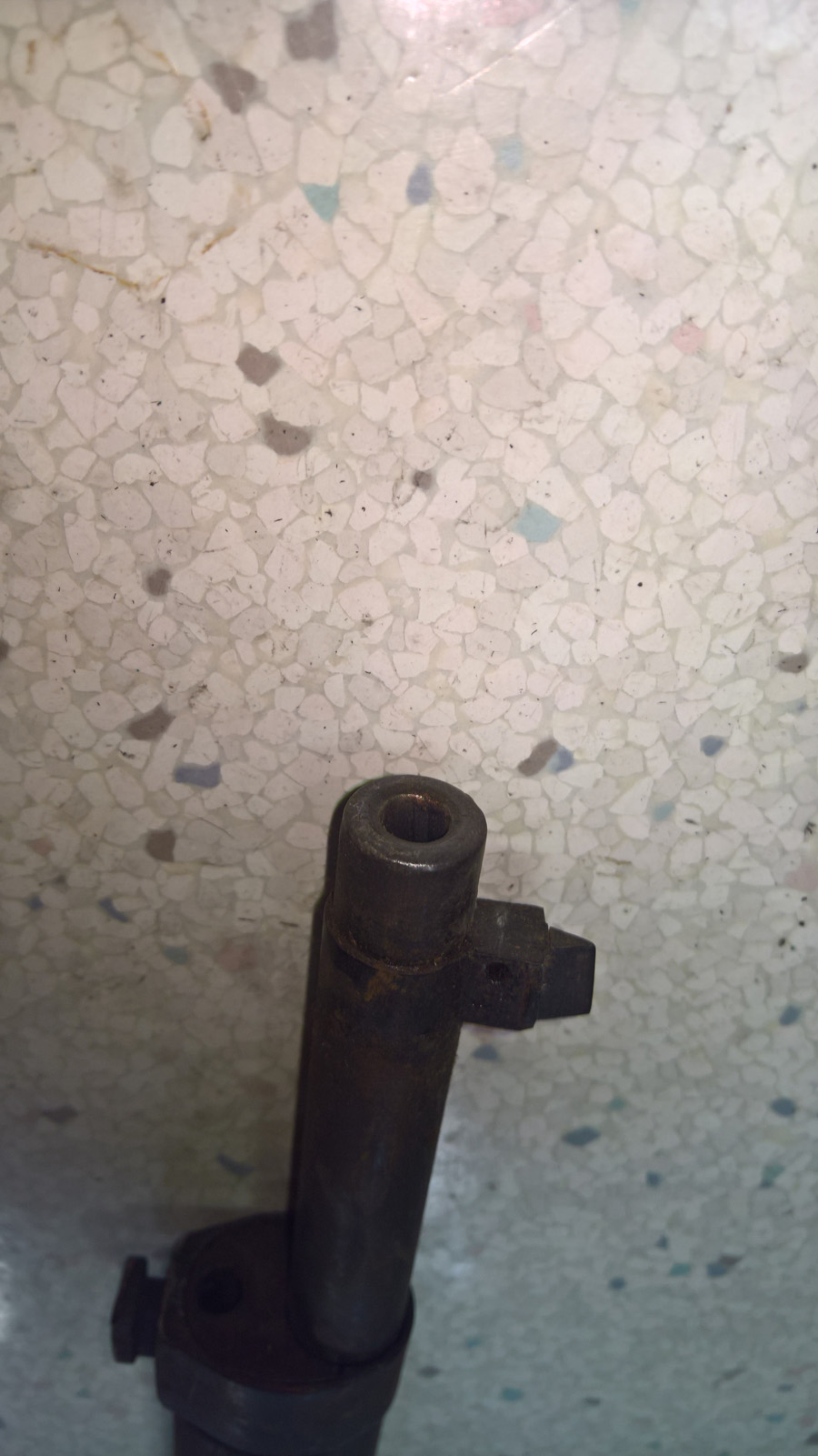
...loose housing...
...and, in several cases, the whole fron sight assembly rotating around the barrel:
Almost all rifles had really bad problems with the rear sights.
In almost every rilfe - safe for maybe five out of fifty five - the sights moved in horizontal plane by 1/16th of an inch,
which would result in one foot spread in point of impact at 100 yards - just from the sights alone. This of course
is completely unacceptable even for a military surplus rifle.
In the past I have owned a large number of old military surplus guns, some in really poor condition - but I have never,
ever seen problems with the rear sights at this scale.
Unsafe headspace
I do not own a 7x57 Mauser headspace gages, unfortunately, but I do have 308 Winchester gages. Thirty of fifty five
rifles I bought were supposed to be chambered in 7.62x51 NATO. The headspaces for 308 and 7.62 are as follows:
|
.308 Winchester |
7.62x51mm NATO |
| GO |
1.6300 |
1.6355 |
| NO-GO |
1.6340 |
1.6405 |
| FIELD REJECT |
1.6380 |
1.6455 |
Of the 20 rifles which I tried, all but five failed to close on 308 Winchester GO gage. This means that
the chamber is too tight to safely fire even 308 ammunition, let alone the 7.62 NATO ammunition for which
the rifles were advertized.
All in all, of the 20 7x57mm Mausers and 35 7.62NATO Mausers that I bought, only one 7x57 and two 7.62 rifles
did not have some disabling defect which would make it possible for me to sell it - and most had more than
one problem (for instance, both dangling rear sights and incorrect headspace were present in almost
every 7.62 rifle).
Be safe!
Judging from the condition, it is quite possible that these guns were rejects sitting at the warehouse
specifically because they were too broken to be sold - even at reduced grading. Some may have been customer
returns, some may have been rejected by Samco itself - we will probably never know. But I see no other reason
why they sat in Samco's warehouse for three decades.
The auction listed other firearms as well - the auction lists 475 pages of inventory.
All these guns - possibly, in the very similar state, unsold by Samco for one, two, three decades - will now be dumped on the unsuspecting military surplus
market. Which means that the amount of junk in circulation will skyrocket.
Some of the problems can be identified by a lay user, but some - such as incorrect headspace - require specialist knowledge and tools. If
you are buying a surplus firearm, you should always - ALWAYS - show it to a qualified gunsmith. And now it is as important as it has ever been.
Be careful!